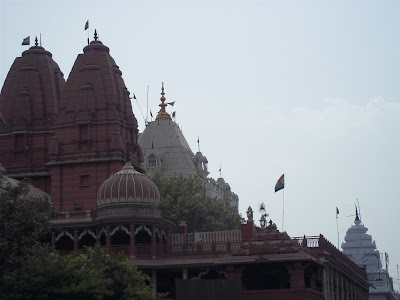




So now that we've gotten some of the background info out of the way, its time to weave a riveting narrative of high-jinks and low-blows as adventures pop up like mushrooms after a rain (haha rain...) and I get more experienced than the Jimmy Hendrix's band.
or rather, life was like that for James Bond and Marco Polo perhaps, but today we have something called the 9-5 and its become frightfully universal, though not universal enough it would seem, because here at GDL we have the innovative model called the 8-8, that is, breakfast at 8, lunch at noon, and dinner at 8 pm, all time in between is spent task-bound and nose to the grindstone, except for occasional breaks to enjoy some Chai, or mango juice, or write a blog post, or get some water, or play the "if i was in america i would be eating ____ food right now game". So its not too bad really, particularly when one is indoors where shade and fans ameliorate the harshest task-master of all, Mr. Sun.
The events leading up to this routine are pretty typical as well, at least for a certain jet-setting class, but for those of us not bread on international flights, and the generally delicious meals that they entail, it was certainly a treat, in particular getting to catch up on movies i'd missed in the controlled chaos of school work at Penn, i savored the opportunity to knock down the Fantastic Mr. Fox (ok, but a bit underwhelming), Marley & Me (tragic and tear-jerking, in all the right ways, it hit pretty close to home), Shutter Island (stressful and at times exhilarating, but mostly startling and a bit upsetting), and The Princess and the Frog (everything you expect from a classic Disney piece, good songs, great characters, and a wholesome and inspiring message).
Now that the important things are out of the way, i might mention Delhi a bit, after arriving late at night I was driven to the hotel UPIASI was putting us up in and met up with Sarah and Meg who were chilling before bed, we made plans to explore some of Delhi as well as purchase the requisite clothing tomorrow before heading out to Bagar by eveningtide. After making our way to a House of Textiles and purchasing several fabulous outfits, we autorickshawed into Old Delhi, looking to get a feel for the sounds and smells of this famous city, and oh did we ever. Old Delhi was a Hot Mess, in caps, emphasis on the hot, and after being turned down from entering the Jama Masjid (the largest mosque in India), and unable to sit on the searing steps without cooking our buns prematurely, we wandered down the bustling main street in search of some food. Finally arriving at a place we could sit down indoors, I indulged in some Pani Puri Chaat (waaay too spicey) and a Mango Lassi (refreshing) after which we wandered a bit through the heat, dodging bikers, cows, donkeys, rickshaws and cars and looking for a Jain temple that included a bird sanctuary, unsuccessful and unabel to enter the Red Fort (closed mondays) we tried to convince an autorickshaw driver to take us back to the India Habitit Centre, which he, speaking no English, did not do, but brought us somewhere in New Delhi where we found someone else to finish up the job. India was going to be a tough cookie it seemed, but daunted I was not, all that was needed was to learn Hindi, learn to tolerate spicy food, learn to tolerate extreme heat, not get sick from the water or food, and not die in the street and everything would be fine, might even be an adventure :)